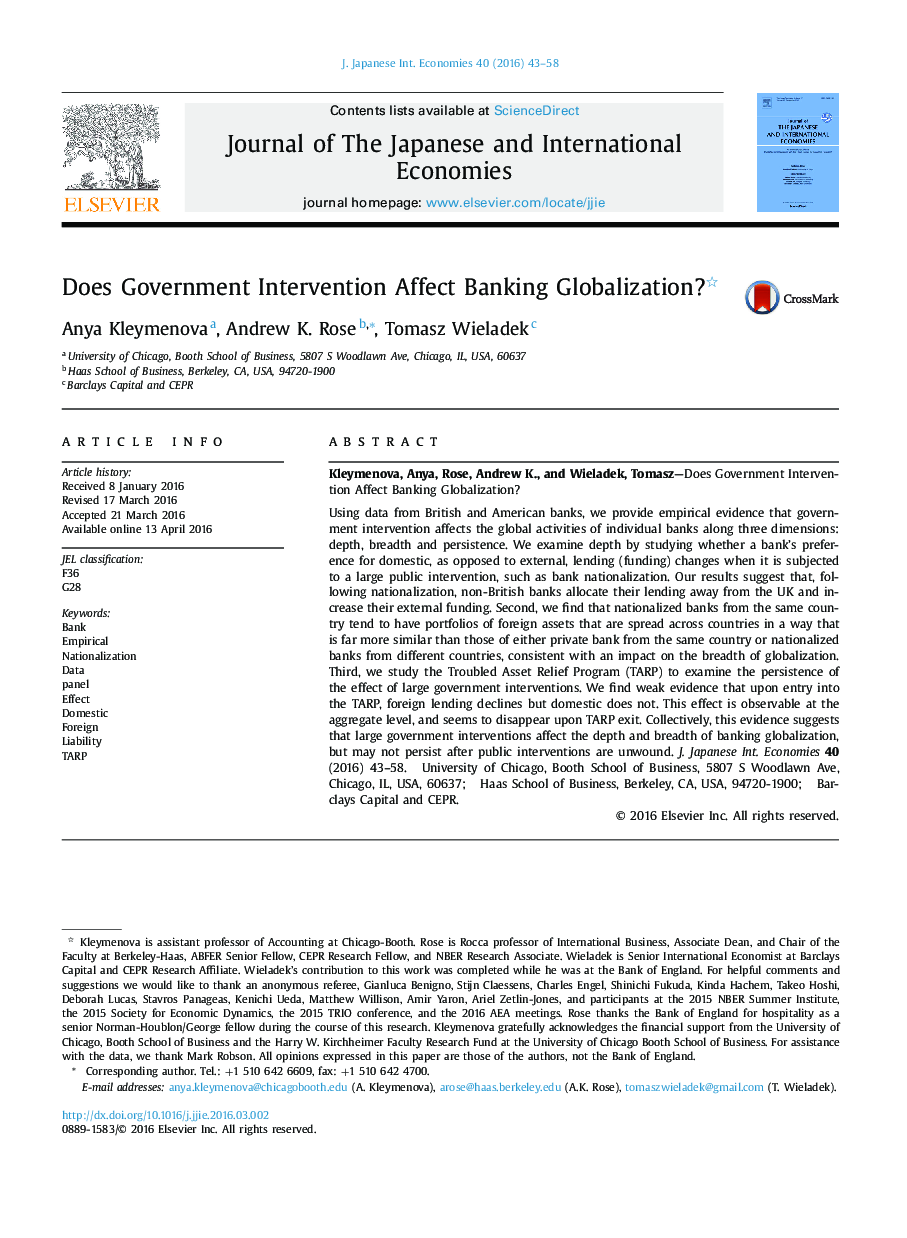| Article ID | Journal | Published Year | Pages | File Type |
|---|---|---|---|---|
| 964886 | Journal of the Japanese and International Economies | 2016 | 16 Pages |
•Empirical evidence of government interventions affecting global activities of banks.•Investigate along three dimensions: depth, breadth and persistence.•Government interventions influence both sides of banks’ balance sheets (depth).•Banks’ cross-country asset allocations converge following nationalization (breadth).•This effect might wear off once government support is withdrawn (persistence).
Using data from British and American banks, we provide empirical evidence that government intervention affects the global activities of individual banks along three dimensions: depth, breadth and persistence. We examine depth by studying whether a bank's preference for domestic, as opposed to external, lending (funding) changes when it is subjected to a large public intervention, such as bank nationalization. Our results suggest that, following nationalization, non-British banks allocate their lending away from the UK and increase their external funding. Second, we find that nationalized banks from the same country tend to have portfolios of foreign assets that are spread across countries in a way that is far more similar than those of either private bank from the same country or nationalized banks from different countries, consistent with an impact on the breadth of globalization. Third, we study the Troubled Asset Relief Program (TARP) to examine the persistence of the effect of large government interventions. We find weak evidence that upon entry into the TARP, foreign lending declines but domestic does not. This effect is observable at the aggregate level, and seems to disappear upon TARP exit. Collectively, this evidence suggests that large government interventions affect the depth and breadth of banking globalization, but may not persist after public interventions are unwound.
